Jordan Johnson is a recent graduate from the University of Pittsburgh, where she majored in Linguistics, and Communication and Rhetoric while studying Spanish and Arabic. She completed a six-week study abroad in San Jose, Costa Rica with the Center for Latin American Studies [CLAS], an internship with the Arts and Sciences Advising Center, and did research with the Linguistics department at Pitt. Jordan had the opportunity to work with several service-oriented positions that led her to searching for a career path where she could continue connecting with people and serving others. Jordan is currently working for Grant Street Group as a Human Resources Administrative Assistant in Pittsburgh.
Here are her thoughts on studying abroad, as well as her internship, mentoring, and more.
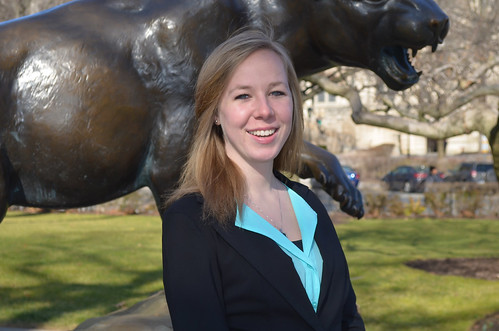
How did you choose your major? How did you choose the college that you attended?
Honestly, someone told me to explore the field of Linguistics. I told them I enjoyed learning languages and while I was good at problem solving, I didn’t want to enter into a hard science field. They recommended I look into Linguistics and I found I really enjoyed it. As for Communication, it was something I had always considered adding onto my college experience because I was interested in it, but I waited until I figured out if I could complete my other coursework to add it on. I chose Pitt mostly because it felt right. There were a lot of logical factors that I considered as well, like cost, location, and available majors, but it really came down to the connection I felt with the campus during my first tour. I didn’t experience that anywhere else.
Did you study or intern abroad? If so, where and why did you pick that place?
I studied abroad in Costa Rica for six weeks during the summer after my sophomore year. I knew I wanted to study abroad somewhere that I could use one of my second languages (Spanish and Arabic). Ultimately, I decided to go to Costa Rica with Pitt’s Center for Latin American Studies (CLAS) because of the research-based nature of the program. While in Costa Rica, I lived with a host family and was expected to produce a qualitative research project while I was there. I had to interact heavily with Costa Rican college students for my project, so I had plenty of opportunities to better my language skills while learning how to do research.
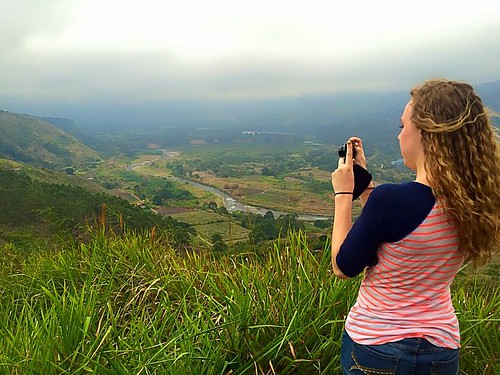
What motivated your decision to go abroad? How/why did you choose where to go?
I had never been out of the country prior to studying abroad and always knew that it was something I wanted to do. Study abroad seemed to be the most realistic option to go see a different part of the world. I just made it a mandatory part of my education.
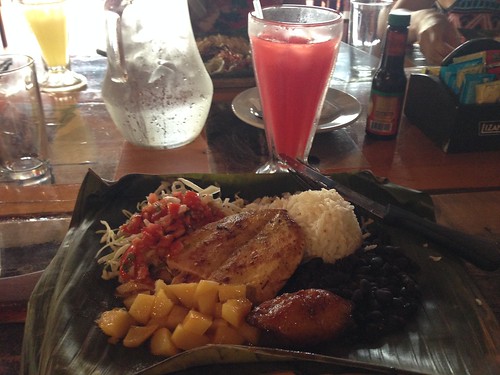
What was your experience like? What is your favorite memory? What were some challenges you observed?
I enjoyed study abroad a lot, but I think I would have been seriously challenged if my program had been any longer. I went to Costa Rica for six weeks and was pretty immersed in the culture. I stayed with a host family and they really made an effort to incorporate me into everyday life in Costa Rica. They encouraged me and my roommate to go explore and involved us in family activities. It was a multi-generational household with grandparents, parents, and children so it was really cool to get three different perspectives on the country. I started to be very homesick towards the end of my trip just because life was a little different there and I missed some amenities from home, my routine, and having easy access to my friends.
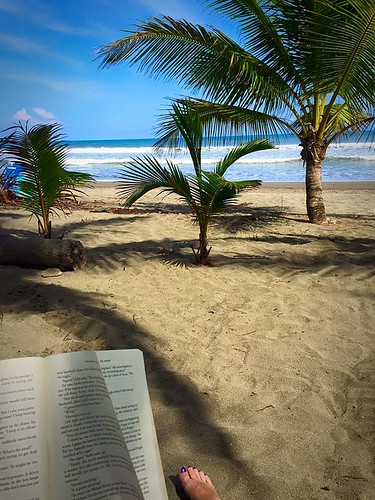
What skills did you develop from your experience? Do you feel changed from your experience abroad?
Studying abroad gave me opportunities that I could not have in the United States. A large part of what I was looking for in a study abroad program was the ability to practice my language skills. Within two weeks of being abroad, my professor told me how noticeable the difference in my Spanish was. I improved my speaking skills as well as my research knowledge, as my program revolved around completing a qualitative research project. I had to survey and interview Costa Ricans in Spanish, and I never would have found that many Spanish speaking participants in Pittsburgh. I feel like studying abroad also showed me what I was capable of. Previously I would have been hesitant to plan a trip to somewhere I had never been and travel on my own or in a small group. Now I do the research that I need to and go without thinking twice about it.
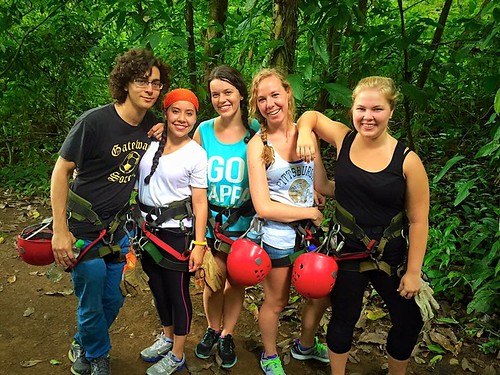
Has your international education experience helped you get to where you are today?
Study abroad is a great thing to talk about during interviews and shows so many positive characteristics. Intellectual curiosity, global awareness, and a general sense openness are all things my company values.
What advice would you share with other students who are thinking of going abroad?
If possible, exchange money before you go. I did this and it saved me some time and confusion. I was able to survive for a while on the money I had gotten from a local branch of PNC and then when I needed to withdraw money I was already accustomed to the exchange rate and could ask others questions.
Also, if you're trying to improve your language skills, insist that those around you speak that language. My cohort and host family would revert to speaking English thinking that they were making communication easier for me but I felt I learnt a lot more when I was immersed in the language fully. Even if it did take a little longer to converse.
Lastly, look for scholarships! There is so much free money out there that will help you participate in a study abroad program.
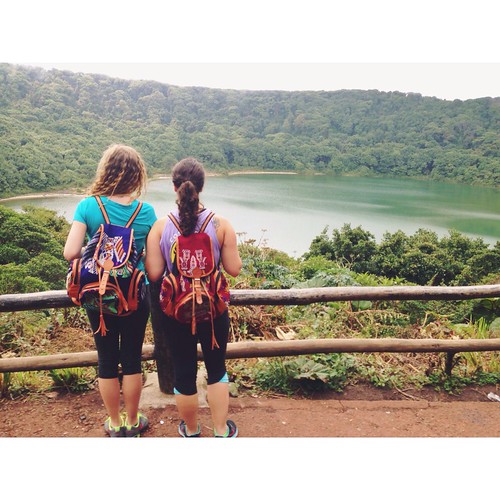
How has international education impacted or influenced your cultural identity?
No, I don't believe so. My cultural identity is largely rooted in where I grew up and not in my heritage or nationality. If I had traveled somewhere that I had a familial connection to, perhaps that would have changed how I felt.
Were internships required in your curriculum? How did you start your internship search?
The only internship that was required by my program (Linguistics) was fulfilled by researching with the Pitt Linguistics Lab. I searched through a database that the department maintains in order to find it.
Where did you gain experience during your time at Pitt?
Peer Advisor Internship -> Student Employment
Undergraduate Teaching Assistant (Freshman Programs, Arabic, and Communication)
Pitt Linguistics Lab - Research Assistant
Phi Sigma Pi National Honor Fraternity – Ritual Historian
Do you feel your experiences prepared you to do the job you do today? What skills did you gain from those experiences?
I truly believe that I was hired for my current job because of my experiences outside of the classroom. While it didn’t hurt that I did well in college, I was able to testify to skills I acquired, like managing the schedules of other research assistants and serving as a resource at the advising center, during my interviews. These transferrable skills were what made me stand out. I had done something that I could directly relate to my new job and that was impressive.
Most experiences help people to figure out if they want to spend time in a certain area or field. Were there any internships or other experiences you had that you didn’t like? What didn’t you like about them? Any challenges?
I really enjoyed the experiences I had, and they helped guide me to a position where I can continue serving, and being a resource for others.
Do you have any mentors? What advice would you give current students about finding a mentor?
In different clubs and leadership experiences, I was often assigned a mentor. I feel like the best way to find a mentor is more organic than being assigned to one another. My “unofficial” mentor is my previous colleague, Joni. She was someone who was very open to teaching me while I was in my position at the University of Pittsburgh and made herself available to me whenever I need help. She still does even after I left the position! I say, always be seeking advice and then find someone who is eager and happy to mentor you.
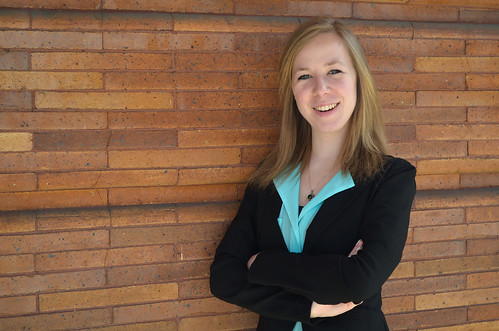
What was your most memorable experience at the University of Pittsburgh?
That’s so tough. I loved my entire career at the University of Pittsburgh. Since I have to pick, I’ll say living in Lothrop and meeting my best friend. Many, many good times followed after that.
Anything else that you’d like to share?
Hail to Pitt (this is a phrase a lot of Pitt students say with enthusiasm on campus or with Pitt pride in relation to their campus)
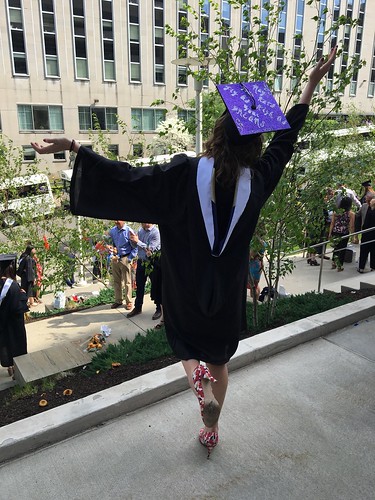
#StudyAbroadBecause ... new adventures await
Pin for later:

Stasia Lopez is the Global Education Editor for Wandering Educators and is also a Career Consultant at the University of Pittsburgh. She graduated with her Master’s degree in Educational Leadership in Higher Education and Student Affairs from Western Michigan University and earned her Bachelor of Science in Business Administration degree in Hospitality and Tourism Management from Robert Morris University. Stasia is passionate about international education, travel, and loves working on a college campus. She’s lived in four different U.S. states (Florida, Michigan, South Carolina, and Pennsylvania) and also studied and lived abroad in Rome, Italy. Stasia lives in the Pittsburgh area with her husband, Fernando, precious daughter, Maya, and playful kitty-cat Zorro.
You can read more of her #studyabroadbecause interviews, as well as articles on various forms of international education at home and abroad, here.
All photos courtesy and copyright Jordan Johnson
